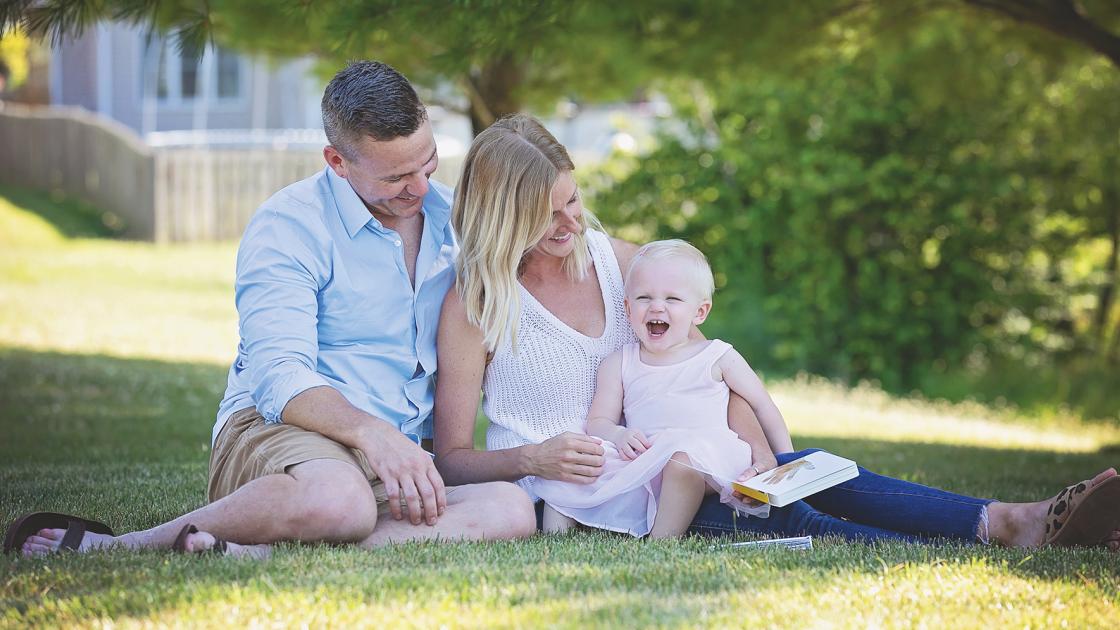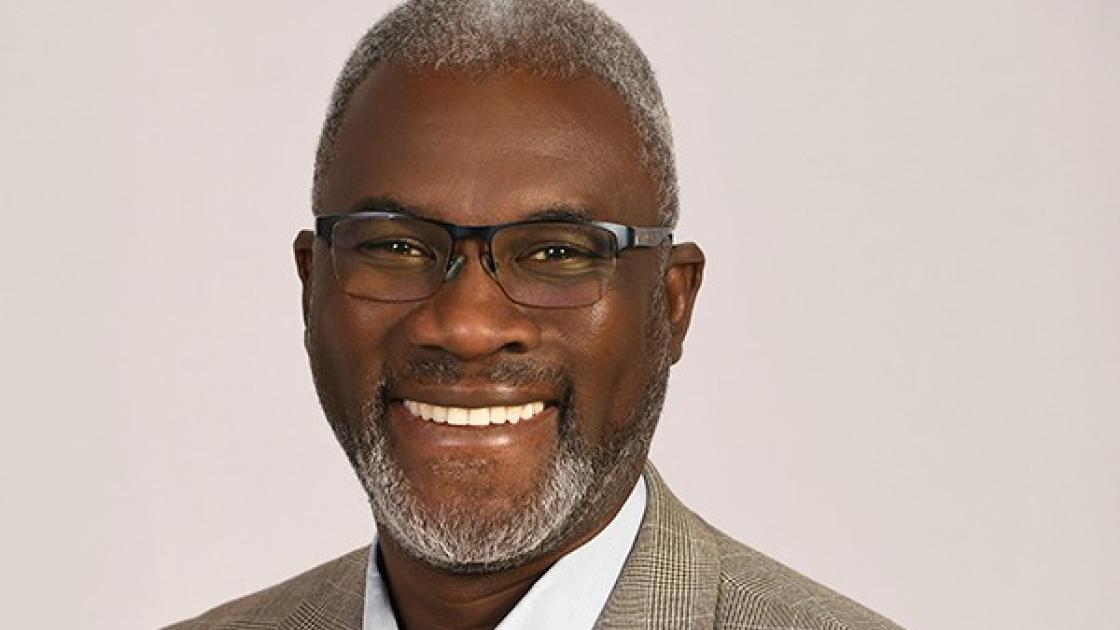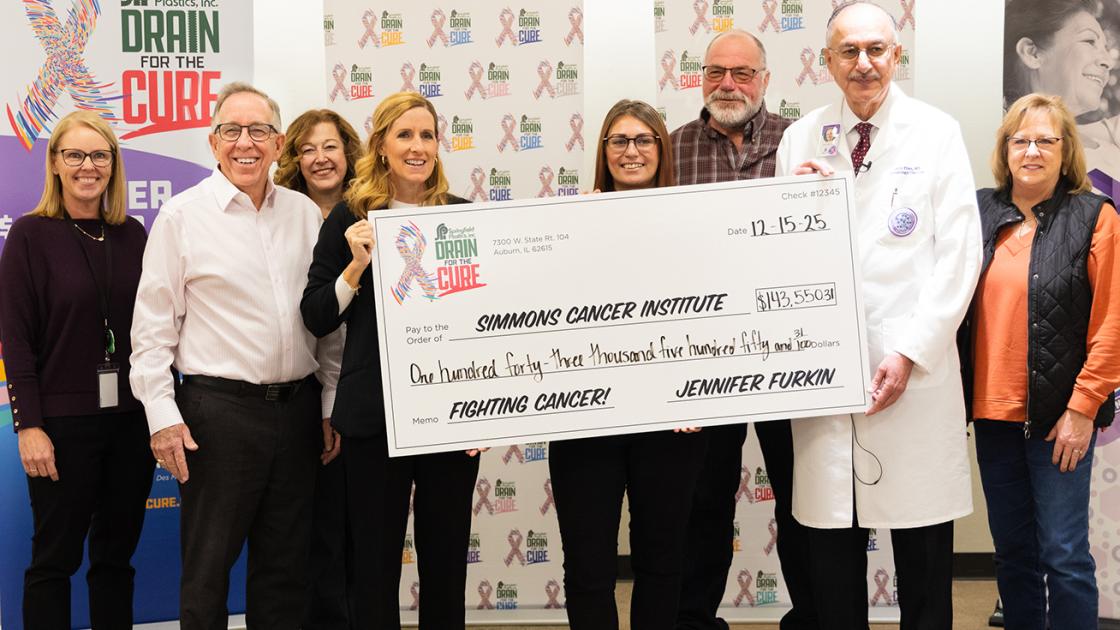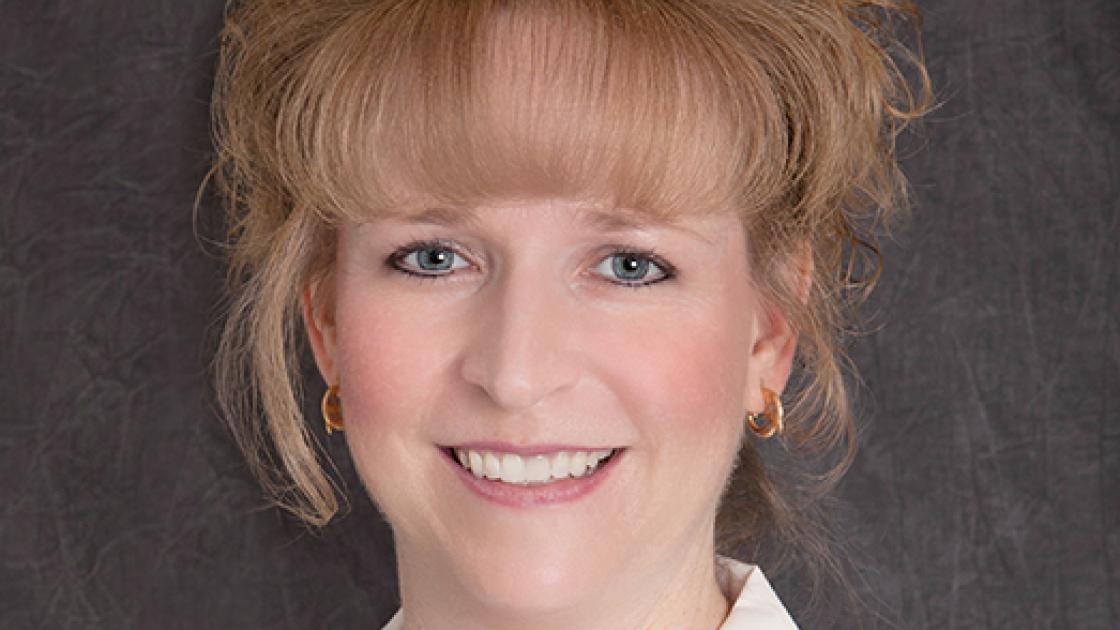
One Decade, 5,000 Babies
In the last 10 years, SIU’s Fertility and IVF Center has become the preferred option for couples dealing with infertility. This spring, the center celebrated 10 years of helping couples start their families. In that time, the center has maintained a reputation for superior quality patient care and a state-of-the-art embryology laboratory.
In 2016, Abbie and Mike Joyner of Sherman, Illinois, had hopes of conceiving a baby to start their family. After years of irregular cycles, one year of trying on their own, and six months of oral medications, cysts developed instead of healthy pregnancies—that’s when the Joyners met with . Ricardo Loret de Mola, MD, medical director of the Fertility & IVF Center and professor and chair of the Department of Obstetrics and Gynecology.
Abbie, now 34, went through 49 total shots to overstimulate her system and produce more eggs. Dr. Loret de Mola retrieved 31 eggs from Abbie and began to fertilize them. Throughout the week following the retrieval, the Joyners received phone calls from Jim Kontio, reproductive endocrinology and infertility lab coordinator, to let them know how many eggs had survived and were thriving.
“The goal of any good IVF practice is to have a single, healthy pregnancy,” said Kontio. “It’s an extreme amount of stress on the mother and fetus to go through a multiple pregnancy and birth.”
“We ended up with five successful embryos and had one implanted,” Abbie said. “We were so thrilled to have a successful pregnancy, and on Nov. 25, 2017, we gave birth to our daughter Wren.”
Now, Abbie and Mike are hoping to add another child to the family and are back in the care of the Fertility and IVF Center at SIU Medicine.
“We had the greatest experience with the entire IVF center. The personal relationships we formed there really helped us through the entire process,” Abbie said. “I almost looked forward to going to our appointments because we knew they were going through this process with us, and that they truly cared about our goals to start a family.”
Patient-centered approach to care
The comprehensive, multidisciplinary team approach to patient care provides each patient—mother, father and fetus—with the best possible individualized attention. The American Society for Reproductive Medicine has designated the center as a Nursing Center of Excellence, an achievement only a handful of fertility centers in the country can claim, according to Dr. Loret de Mola.
“Instead of two sets of eyes, our patients get 20 sets of eyes looking over every detail, and the collaboration among our team is what makes the difference,” said Dr. Loret de Mola. “We meet daily to discuss the current patients coming in, we get to know our patients, to truly understand what underlying issues may be impacting their fertility problems, and then we are transparent with them if we know we cannot help them.”
The pieces that put us together, our DNA, can play a large role in fertility. Women age 35 or older comprise a large sector of those seeking fertility treatments. Their advancing years not only decrease the chances of getting pregnant, but also increase their chances of chromosomal abnormalities resulting in miscarriage or birth defects. Sometimes younger patients experience miscarriages and seek out genetic testing for answers. They may learn of a family history of certain genetic conditions they could pass on to their children. Genetic screening on the mother, father and/or tissue from miscarriages can sometimes help determine the cause.
Technological edge
“The advanced tools and preimplantation genetic diagnosis we have at SIU allow us to make better choices to transfer a single embryo and have a healthy baby at the end of the process,” Kontio says.
Preimplantation genetic diagnosis (PGD) tests embryos for specific genetic differences. “If we know a couple is at high risk to have a child with a chromosome abnormality, we can use PGD to find embryos that have healthy chromosomes and implant those,” SIU genetic counselor Heather Glessner says. “If both members of a couple are carriers of a recessive disease, they have a 25 percent chance of each baby having the condition. Again, we can use PGD to test the embryos and determine which ones are unaffected.”
Approximately one-third of infertility is attributed to the female, one-third to the male and one-third by a combination of issues in both or is unexplained, according to the American Society for Reproductive Medicine. For Abbie and Mike, the cause was related to polycystic ovarian syndrome, or PCOS.
Because of these advancements, the Joyners will know what to expect and what to hope for with this second round of IVF treatment, using one of the four remaining frozen embryos harvested in 2017.
“Wren is the most energetic, fearless child, with bright blue eyes and blond hair,” says Abbie. “I hope these embryos have chilled out some because I’d love the second one to be a more relaxed child.”



